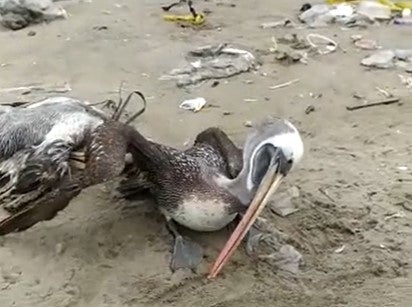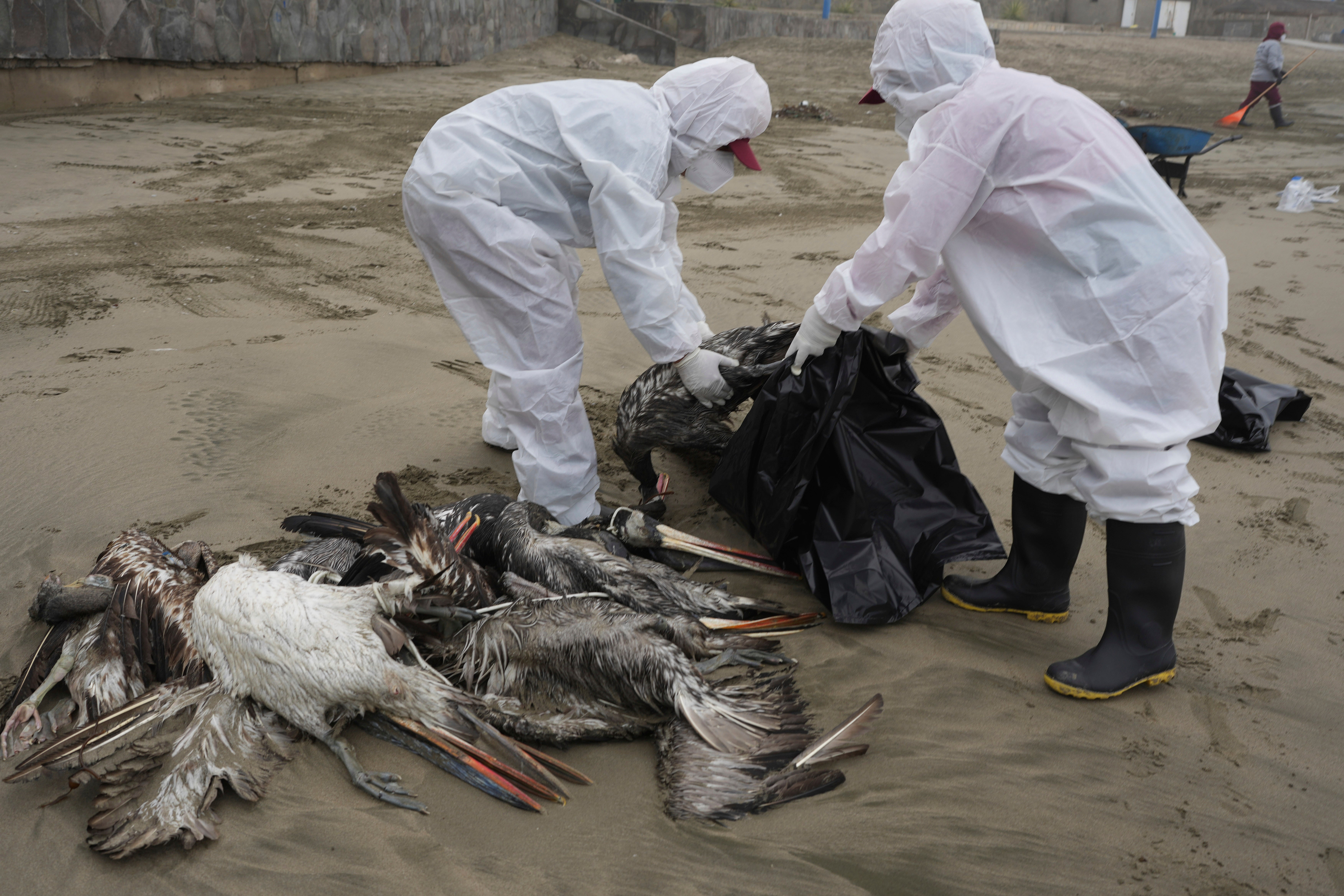Beaches become mass graves as bird flu decimates Pelicans in Peru
An estimated 13% of Peru’s pelican population has been killed

A new bird flu variant has killed nearly 17,000 pelicans has turned beaches in Peru into mass graves.
The outbreak has led to the temporary closure of beaches to locals and tourists as health and agricultural workers disinfect and bury the birds – an estimated 13% of the country’s entire population.
The H5N1 variant attacks the nervous system and causes infected birds to lose coordination, prevents them from flying, causes them to swim in circles, and become oblivious to their surroundings.
Peruvians have been warned to keep their distance from dead and ill birds.
"This virus has the ability to mutate [recurring possibility], therefore, it is important not to get close to birds to prevent it from passing to humans," Leslie Soto told Exitosa.
According to the latest report from the National Forestry and Wildlife Service, more than 22,000 sea and coastal birds have died from bird flu since November.

The animal with the highest number of deaths is the pelican (16,890), followed by marine boobies (4,324), camanay (630) and guanay (168).
The Peruvian government has declared a 90-day health emergency and banned poultry markets and other events. Tens of thousands of farm birds have been culled after the virus was detected.
Scientists told The Independent the climate crisis could theoretically lead to increased bird flu infections, but there was no evidence of this at the moment.
Mark Fellowes, an ecology professor at the University of Reading, said: “There’s little doubt that climate change is altering both the timing and patterns of bird migration.”



Join our commenting forum
Join thought-provoking conversations, follow other Independent readers and see their replies
Comments